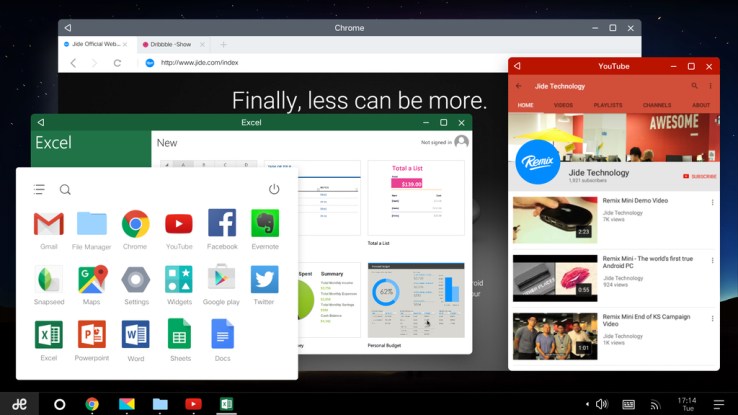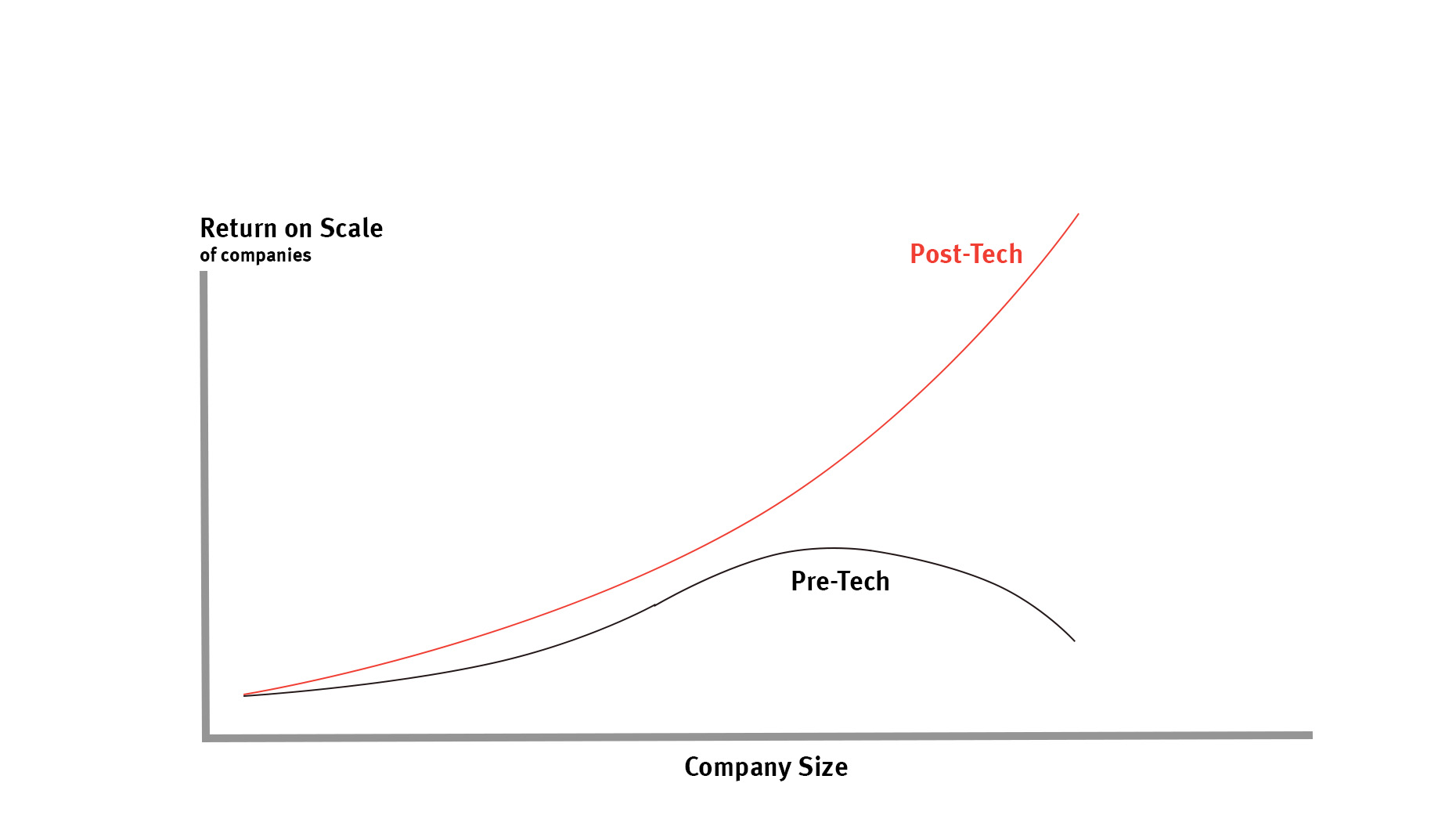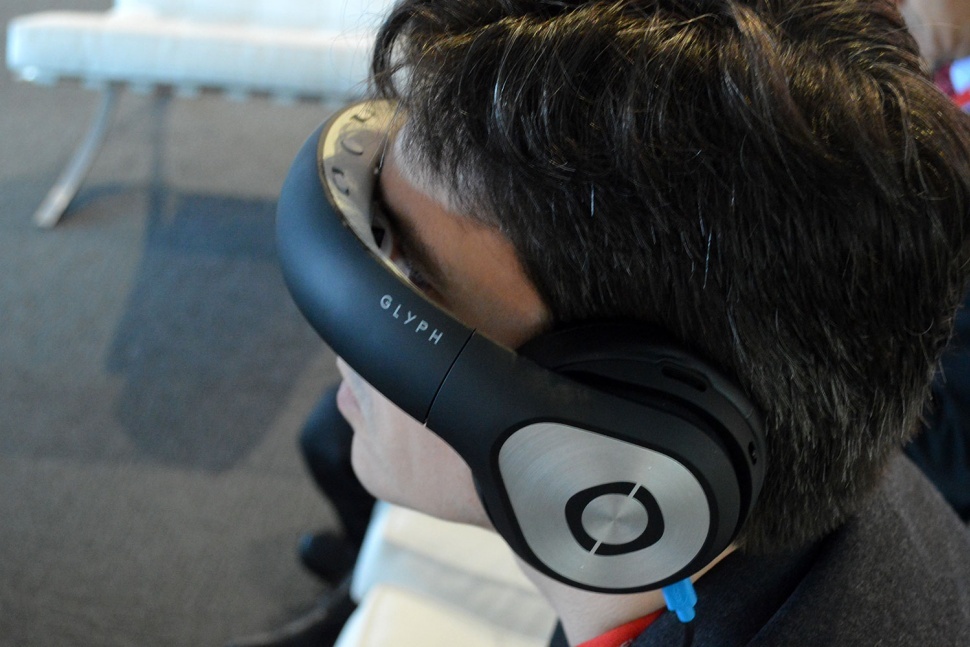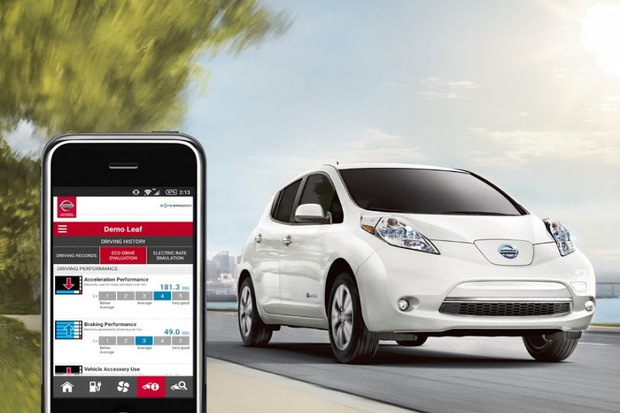Sections
Artificial Intelligence and Humanity
[avatar user=”malm” size=”small” align=”left” link=”file” /]
In October 2015, the Barbican ran a panel session titled “Is Technology Limiting our Humanity?” exploring the social impact of robotic intelligence. The corresponding debate is now available online as video (linked below) and podcast. It’s a long but rewarding listen. There are several highlights including Dr Norman Lewis’ comments on “ambition deficit disorder” about 26 minutes in where he suggests that rather than automating cars, we should be looking at entirely new systems altogether warning that the elevation of reinforcing existing habits over creativity reduces our humanity. and that we should be pushing for originality in all our endeavours. Andrew Orlowski’s comments 36 minutes in on ‘displacement anxiety’ challenge a key assumption around technological unemployment suggesting that middle-class fears of robotic replacement are a reaction to a wider behaviourism-inspired “dumbing down” of human difference in the digital age. In that context:
When the professional classes hollow themselves out, as media and GPs, the same academics and political professionals have done, then they can’t really blame automation. They’ve automated themselves.
Orlowski expands upon his ideas in a couple of longer posts on The Register in which he refers to the likes of Facebook et al as operating “plantation-style” platforms which seek to classify humans thereby inevitably leading us to entertain thoughts of the logical next step being replacement by machines/algorithms.
Nevertheless, Artificial Intelligence is here to change our lives and the issue of what humans do in a world dominated by it will become ever more pressing with time:
This issue of what it means to be a person in an age where more will be done by machines around us — what will give us purpose in life?” asked Illah Nourbakhsh, a professor of robotics at Carnegie Mellon University. “We need some kind of disruptive change in the social contract eventually. … You need to give people a sense of purpose, a sense of pride and being,” he added. “We need to resolve that at the global level.”
The outlines of that world to come are being formed today in exponential bounds. Google’s announcement of the application of Deep Learning to digital photography to produce a tool with a “superhuman ability to determine the Location of almost any image” is a case in point and the approach it uses would have been inconceivable as little as 5 years ago:
[it uses] 91 million … images to teach a powerful neural network to work out the grid location using only the image itself. [The] idea is to input an image into this neural net and get as the output a particular grid location or a set of likely candidates.
Relatedly, it is now entirely possible to read a post entitled “Coding Jarvis in Python” in all seriousness and for it to make sense – of course speech recognition and text-to-speech support would be available via import. Why not?:
import speech_recognition import pyttsx
The combination of this front end functionality and the latest Deep Learning driven Natural Language Processing (NLP) advances suggests voice AI is on the threshold of mainstream adoption in 2016 across the board. A key enabler for opening up text to deep net inspection is Google’s word2vec library which transforms each individual word to a vector of up to 300 features:
new tools and new techniques—particularly open source technologies such as Google’s word2vec neural text processing tool—combined with steady increases in computing power, have broadened the potential for natural language processing far beyond the research lab or supercomputer. In domains as varied as finding pertinent news for a company’s potential investors to making hyper-personalized recommendations for online shopping to making music recommendations on streaming radio services, NLP is enabling everyday human-computer interaction in an ever-increasing range of venues.
In the UK, news that Google’s DeepMind are intending to partner with the NHS to jointly develop a clinician-led app called Stream that also uses neural network based machine learning to improve real time patient care:
And finally in terms of the shape of things to come we have the ground-breaking new video game No Man’s Sky which was briefly namechecked last year and is due to launch in June. It uses AI to help generate a veritable infinity of worlds, a constructed reality so vast that it apparently made Elon Musk question whether our reality is a simulation.
Humans
- “Who will we be?” is the title of the sixth and final episode of David Eagleman’s tremendous PBS TV series, The Brain. It explores some of the above themes examining the prospects for humanity and the trajectory of brain enhancement technology into the future. Throughout the series Eagleman has vividly conveyed how the our brain interprets patterned signals from a wide-range of input sensors and weaves consciousness and our experience of reality from it. He has repeatedly underlined that the accumulated experiences of life and adaptations due to individual circumstance sculpt each brain to be entirely unique from every other so that when a person dies, literally a whole world encoded in a unique network of neural pathways passes away with them. Perhaps the most astonishing moment of this episode is when this comes together in a moment of profound spookiness with the footage of “the world’s most advanced robotic arm” being precisely controlled through the means of an electrode array interfaced directly into the brain of a paraplegic. One can see here the beginnings of a whole new field of exoskeletal enhancement in the coming decades:
- Following that, it seems pertinent to ask, how powerful is the human brain compared to a computer?
- Brain wearables were covered in the blog last year in the context of the “neurohacking” scene around transcranial direct current stimulation (tCDS). Those involved in their development seem to see it as no less mainstream than fitness wearables with every prospect of getting even bigger in 2016 with potential application across a whole range of learning scenarios:
It’s possible that brain stimulation could be implemented for classes like drivers’ training, SAT prep, and language learning.
Robots
- Continuing the theme, this insistent and persuasive post on Boston Globe provides a good overview of why the Basic Income argument is inextricably linked with technological unemployment because “we’re building a world where a universal basic income may be the only rational, fair way for society to function“:
We must seriously start talking about decoupling income from work. Adopting a universal basic income, aside from immunizing against the negative effects of automation, also decreases the risks inherent in entrepreneurship, and the sizes of bureaucracies otherwise necessary to boost incomes. … It turns out, humans are good at designing things, but not so great at picturing a world that their technology will create. What’s the big lesson to learn, in a century when machines can learn? Maybe it is that jobs are for machines, and life is for people.
- Nowhere will be immune from the impact of automation. Least of all Wall Street where companies like automated financial analysis proposition Kensho are hollowing out middle class jobs. Kensho founder Daniel Nadler is previewed by NYT this week and is remarkably sanguine in his assessment:
we are creating a very small number of high-paying jobs in return for destroying a very large number of fairly high-paying jobs, and the net-net to society, absent some sort of policy intervention or new industry that no one’s thought of yet to employ all those people, is a net loss
- Care for the elderly too will be totally transformed and the signs of that change are already evident in Japan. Alec Ross, author of “The Industries of the Future” outlines the prospects for robotic caregivers in a LinkedIn post.

-
A video of Boston Dynamics Atlas being attacked by a “jerk human” went viral this week. It’s oddly disconcerting watching this innocent worker bot surviving repeated unprovoked attack, quietly getting up and walking to safety each time. Mashable shared the discomfort suggesting the it was “less like a typical product teaser than a piece of propaganda for future robots who will wage war against us for our poor treatment of their ancestors“. Echoes of future past dystopia:
“It can’t be bargained with. It can’t be reasoned with. It doesn’t feel pity, or remorse, or fear. And it absolutely will not stop, ever…”
-
More prosaically, Wired highlighted that the incorporation of LIDAR technology into the next generation version of Atlas was the key enabler allowing it to work out how to get up. It represents another important milestone in robotics. Mashable agreed it was a watershed, the moment our “robot-controlled future arrived in all its terrifying glory“:
Google just reminded us all that the era of intelligent human-like machines capable of doing our jobs and bouncing back from environmental obstacles may not be decades away. It’s already here.
Mobile
- The annual MWC in Barcelona proved to be a curious affair with the focus seemingly shifting from smartphones to the wider mobile ecosystem. DigitalTrends provided a handy summary of their key takeaways from this year’s event which broadly echoed those of other correspondents: i) 2016 could be the year VR takes off, ii) phone accessories including smart cases are a legitimate and big deal, iii) smartphone spec sheets don’t matter any more, iv) everyone claims to be listening to the voice of the customer which possibly explains why all the phones look the same, v) the continued relentless rise of Chinese OEMs, vi) cars are the new battleground for mobile, vii) Mark Zuckerberg probably the most powerful man in mobile.
- The ascent of Zuckerberg to the summit is all the more remarkable when one reads his insightful Business Insider interview with Axel Springer. In it he explains how he started out in his teens with a few hacked up scripts at Harvard to help facilitate cross-campus collaboration and communication and remains baffled as to why no-one else tried to “do” a Facebook before.
- The Register are reporting respected mobile analyst Richard Windsor’s prediction that Google will seek exert a greater level of control over OEMs in order to deal with Android fragmentation. If true, this may well be aligned with N release and will constitute “yet another nail in the coffin” for struggling Android vendors:
“Google will end up taking complete control of Android by moving the entire OS into its services layer known as Google Mobile Services (GMS). This is the only way that Google can end the endemic fragmentation that continues to plague its devices as well as take back control of software distribution,” Windsor said. “The net result is that a Google device will become much like an iOS or a Windows 10 device with absolutely no options for handset makers to make any changes.”
- No wonder OEMs are looking at Android alternatives free of GMS restrictions like Cyanogen. Jide are another recent entrant in this space. Techcrunch reviewed their Remix OS Tweaks aimed at PC form factor devices.

- FT on why digitally weary users “switching to dumb phones” is now something of a trend.
- A “versatile NFC/RFID card emulator” Swiss Army knife proposition from Kaspar Oswald has been 800% over-financed on Kickstarter. Obviously some demand for this:
- In a highly symbolic move Chinese ODM Foxconn bought Japanese OEM Sharp.
- CNET preview dual smartphone camera technology from Israeli startup Corephotonics:
The new dual-camera system promises optical zoom with no moving parts, while also allowing for better noise reduction that’s not available on current phone camera sensors.
Cloud and Devops
- Serverless computing technology like AWS Lambda and Google’s recently launched response, Cloud Functions, are now getting namechecked in Forbes. So they must have arrived.
- Not even DevOps will be immune from the impact of AI-driven automation.
- In what will be seen as a further huge validation of public cloud over private or even hybrid IT, Spotify is doing a shift and lift of its entire backend infrastructure to Google cloud:
The storage, compute and network services available from cloud providers are as high quality, high performance and low cost as what the traditional approach provides. This makes the move to the cloud a no-brainer for us.
The Internet of Things
- Insecure APIs on the Nissan Leaf electric car for use by the companion smartphone app were exposed this week:
The unsecured APIs allow anyone who knows the VIN number of a car to access non-critical features such as climate control and battery charge management from anywhere across the Internet. Additionally, someone exploiting the unauthenticated APIs can see the car’s estimated driving range.
- The Raspberry Pi 3 just launched and is available online at sub £30. Standout features include an upgraded 64-bit processor built on a 1.2GHz Quad-Core ARM Cortex-A53 and Bluetooth LE support
Startups
- The Information on why most tech startups are doomed – they can’t outrun the new dominant players in the same way that tech startups used to in the past. The new leaders like Facebook are much more aware of the effects of company size on scale performance and aren’t likely to hyper-inflate their staff base with mediocre hires. Net result is a “permanent growth” organisation:

- Maybe someone should tell this lot – the “10 British AI startups to look out for in 2016” according to Business Insider.
- Another ambitious AI startup this time one based in the US and brazenly entitled Brain LLC “is looking to create a virtual assistant for each user by having users input not just a profile of who they are, but what they do, and what they want to do in the future.“
Leadership
- This in-depth NYT analysis of Google’s Project Aristotle outlines their quest to understand how to build the perfect team. After years of exhaustive work, their conclusions were surprisingly intuitive and very human. Turns out that some of the key factors include having a balanced team in which everyone contributes in what is perceived to be an equal way. And just plain being respectful to other team members as Quartz put it:
Google’s data-driven approach ended up highlighting what leaders in the business world have known for a while; the best teams respect one another’s emotions and are mindful that all members should contribute to the conversation equally. It has less to do with who is in a team, and more with how a team’s members interact with one another.
- This FirstRound post on adaptable leadership being the ‘new holy grail’ covers the usual territory though it does make some interesting points in respect of the inherent conflict between curiosity/learning on the one hand and attention/selection on the other:
modern life hones skills — like pattern recognition and selective attention — that are at odds with learning. With hectic personal and professional schedules, we live much of life sensing and responding, only engaging in creative or critical thinking occasionally
The Politics of Attention
- Brilliant must-read from Rolling Stone on Trump and how it is America itself that has made him unstoppable; “Brace yourselves, America. It’s really happening“:
It turns out we let our electoral process devolve into something so fake and dysfunctional that any half-bright con man with the stones to try it could walk right through the front door and tear it to shreds on the first go. … And Trump is no half-bright con man, either. He’s way better than average – and the American political system is his easiest mark ever.

- Noam Chomsky has released his perspective on the irresistible rise of Donald Trump suggesting he has taken advantage of a period of social tumult using skillful demagoguery as Hitler did in the 1930’s:
“Fear, along with the breakdown of society during the neoliberal period. People feel isolated, helpless, victim of powerful forces they do not understand and cannot influence.”
- The whiff of distaste around Trump extends to many in his own party and when (as now seems inevitable) he secures the GOP nomination, all bets are off in terms of party loyalties.
- Trump has doubtless been aided by the media which has covered him almost to the exclusion of every other. He seems the living embodiment of Malcolm X’s famous dictum on attention:
- The extent to which excessive media attention can manipulate the environment a candidate operates is well recognised. What is less well recognised is the role of search engines in influencing the results of elections. This recent PNAS research paper suggests it is a significant factor which “can shift the voting preferences of undecided voters by 20% or more“:
We call this type of influence, which might be applicable to a variety of attitudes and beliefs, the search engine manipulation effect. Given that many elections are won by small margins, our results suggest that a search engine company has the power to influence the results of a substantial number of elections with impunity. The impact of such manipulations would be especially large in countries dominated by a single search engine company.
- We live in a future where our attention is cheaply distracted and sold as arguably the most valuable asset we have, at least in Internet terms. At least that’s the premise of a powerful post on Quartz which adds urgency to the need to lead as distraction-free a life as you can. One built around a clear focus:
the new scarcity in the internet age is attention. Since there is a surplus of information, more information flowing through our society than any of us could ever hope to process or understand, the new bottleneck on our economy is attention. … The quality of that attention doesn’t matter. What matters is the attention. That attention is an asset, the most valuable asset in the new economy. … Focus is what generates long-term success. Focus leads to deeper and more meaningful relationships. Focus determines how well we can improve at something.



